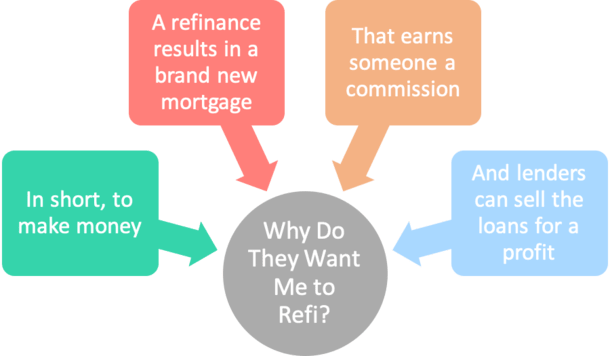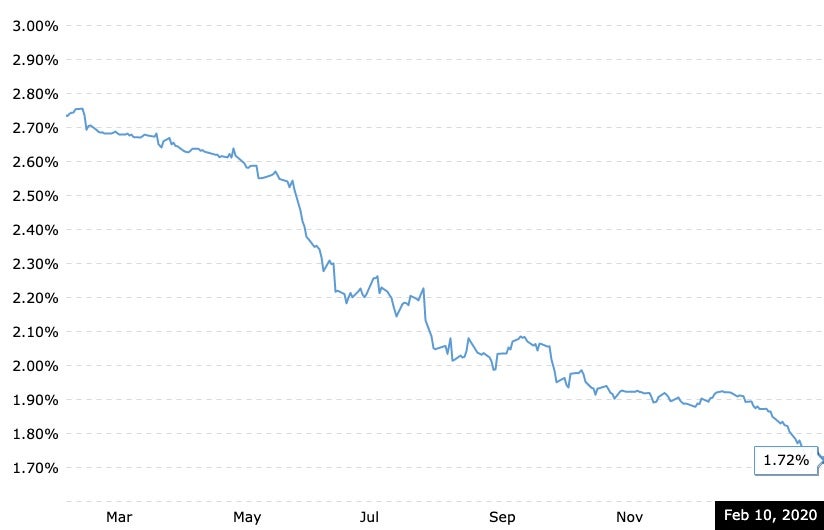One choice is to merely offer the home to pay off the mortgage, and distribute any remaining funds from the sale to the beneficiaries as determined by the will or the laws in your state. If you desire to keep the home, you'll require to work with the servicer to get the home mortgage moved to you.
If there was a reverse mortgage on the property, the loan amount ends up being due after the death of the debtor. If the beneficiary to the home wishes to retain the home, they'll need to pay back the loan. Otherwise, they can offer the house or turn the deed over to the reverse mortgage servicer to satisfy the debt.
The reverse home mortgage is a popular method utilized by older homeowners to make the most of equity in their homes. Open to house owners 62 or older, the reverse mortgage can supply them consistent home equity earnings. Additionally, the older a homeowner is, the more equity earnings a reverse mortgage provides in return (what do i do to check in on reverse mortgages).
Reverse home mortgages are is wesley financial group legitimate readily available to homeowners meeting age requirements and who fully own or have significant equity in their homes. The house protects a house owner's reverse mortgage. While no payments are made by a property owner with a reverse home loan, the mortgage is due upon death. Estate possessions can repay a reverse home loan.
Reverse home mortgages are paid back in a number of various ways. In addition to the estate of the deceased, beneficiaries to the reverse mortgaged home can likewise pay back the loan completely. Reverse home mortgage lenders frequently provide beneficiaries from three to 12 months to pay back the loan. If neither the beneficiaries nor the estate repay the loan, the loan provider normally reclaims the house.
As lienholders, lending institutions can seek foreclosure on the homes securing their loans when they're not paid back. In cases in which a reverse mortgage lender winds up foreclosing, it will attempt to offer the home to satisfy its loan. Any profits left over after a reverse home mortgage lending institution forecloses and offers a house usually go to the departed customer's beneficiaries or estate.
Getting The Hedge Funds Who Buy Residential Mortgages To Work
By law, reverse home loans are non-recourse loans, meaning loan providers can't pursue house owner estates or successors for any home loan deficiencies remaining after sale (what is the going rate on 20 year mortgages in kentucky). Luckily, numerous reverse mortgages fall under https://www.myfrugalbusiness.com/2020/10/what-is-a-timeshare-important-things-to-know.html the Federal Housing Administration's Home Equity Conversion Home loan program. All FHA-based reverse home mortgages include unique home mortgage insurance to cover their loan providers must mortgage shortfalls result when successors offer those homes.
Much like a standard mortgage, there are costs associated with getting a reverse mortgage, specifically the House Equity Conversion Home Mortgage (HECM). These costs are generally greater than those associated with a traditional home mortgage. Here are a couple of charges you can anticipate. The in advance home mortgage insurance coverage premium (MIP) is paid to the FHA when you close your loan.
If the home costs less than what is due on the loan, this insurance coverage covers the difference so you will not end up undersea on your loan and the lender does not lose money on their investment. It also protects you from losing your loan if your lender fails or can no longer satisfy its commitments for whatever reason.
The expense of the in advance MIP is 2% of the assessed worth of the house or $726,535 (the FHA's financing limit), whichever is less. For instance, if you own a home that deserves $250,000, your upfront MIP will cost around $5,000. In addition to an in advance MIP, there is likewise an annual MIP that accrues every year and is paid when the loan comes due.
5% of the loan balance. The home loan origination cost is the amount of cash a lending institution credits come from and process your loan. This expense is 2% of the first $200,000 of the house's value plus 1% of the staying value after that. The FHA has actually set a minimum and maximum expense of the origination charge, so no matter what your house is valued, you will not pay less than $2,500 or more than $6,000.

The maintenance cost is a monthly charge by the lending institution to service and administer the loan and can cost approximately $35 every month. Appraisals are needed by HUD and figure out the market worth of your house. While the real expense of your appraisal will depend upon aspects like place and size of the home, they usually cost in between $300 and $500.
Not known Facts About What Are Brea Loans In Mortgages

These expenses might include: Credit report fees: $30 $50 Document preparation fees: $50 $100 Carrier fees: $50 Escrow, or closing fee: $150 $800 Title insurance coverage: Depend upon your loan and place There are many aspects that influence the rate of interest for a reverse home loan, consisting of the loan provider you work with, the kind of loan you get and whether you get a fixed- or adjustable rate mortgage (what is the interest rate today on mortgages).
A reverse home loan is a means for qualified property owners to use the equity in their houses to meet retirement costs. To qualify, you should be age sixty-two (62) or over, inhabit the property as your primary home, and own the house outright or have enough equity in the home.
The loan accumulates interest and other charges that are not due up until a trigger occasion happens. However, the borrower is still responsible for residential or commercial property taxes, homeowner insurance coverage, house owner association costs (if any), and upkeep. There are three choices https://criticsrant.com/digital-solutions-for-sourcing-the-best-real-estate-agents/ for loan profits to be dispersed to the borrower: a swelling sum, a regular monthly payment quantity, or a home equity line of credit.
The debtor no longer uses the home as a primary house for more than 12 consecutive months. (A customer can be far from the house, e. g., in a retirement home, for up to 12 months due to physical or mental disorder. If the relocation is long-term the loan becomes due).
If a surviving partner is not also a customer, likely because she/he is under age 62, a federal case, pointed out in Oregon cases, holds that the loan provider can not foreclose versus a making it through partner non-borrower at the death of the spouse/borrower. Nevertheless, the loan is still due as talked about above. If a home with a reverse home mortgage becomes subject to probate, the mortgage is still an encumbrance on the property.